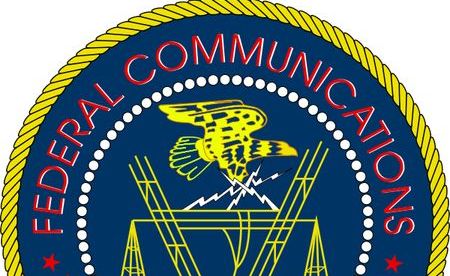FCC Proposes Defining 'Linear' OVDs as MVPDs
The smarter way to stay on top of the multichannel video marketplace. Sign up below.
You are now subscribed
Your newsletter sign-up was successful

According to multiple sources, the FCC is working on an item that would define an online video provider (OVD) that delivers a linear stream of programming as an MVPD, similar to a cable or satellite operator. That means it would have access to content through the FCC's program access rules, but also have to negotiate retransmission-consent with broadcasters.
The idea is that over-the top providers would have an FCC-enforced access to vertically integrated programming.
The item, which could be circulated as early as this week, reportedly asks what other MVPD rights and responsibilities beyond access and retrans carriage should extend to over-the-top providers.
An FCC spokesperson had no comment. But an FCC official speaking on background confirmed that the item proposed adopting a technology neutral definition of an MVPD.
That would mean reversing a tentative, bureau-level conclusion in the Sky Angel program-access complaint that having a facilities-based transmission path was necessary to be an MVPD. The FCC tentatively concluded that an MVPD has to have control of both the content and the transmission path—copper, fiber, satellite signals to be delivering a channel—and that an OVD distributor lacks that path since it does not control a facilities-based channel to deliver it.
The NPRM tentatively concludes that the entity would not need to own the transmission path to be an MVPD as long as it provides a continuous linear stream of prescheduled programming--not like a Netflix or other on-demand video programmer without a linear lineup.
The FCC had been considering giving OVDs a path to MVPD status through a marketing or joint venture with ISPs, but there appears to be no opt in or opt out status, said the FCC official, adding that you either are or are not an MVPD keyed to delivering that linear lineup.
The smarter way to stay on top of the multichannel video marketplace. Sign up below.
Sky Angel, which moved its linear service to over-the-top delivery, suspended operations in January 2014, something it pointed out to the FCC in comments in June, explaining that it could not compete with traditional MVPDs withoug access to programming afforded MVPDs via FCC program access rules.
If OTT's gain MVPD status, they would secure access to TV stations via must-carry and retrans rules, but would also be subject to program-carriage requirements.
Such a decision could also insure that online video distributors have access to must-have video networks that would allow them to be competitive with traditional video suppliers like cable and satellite.
The FCC signaled in the Comcast/NBCU deal that it expected over-the-top video to become a competitor to traditional MVPDs going forward and, therefore, included conditions requiring the company to make its programming available to OTT providers on nondiscriminatory terms and conditions.
Giving OTTs MVPD status would also appear to mean would-be online TV station distributor Aereo could qualify for a compulsory license and have a path forward. But Aereo would also have to negotiate-retransmission consent payments with TV stations if it wanted to carry stations that did not opt for must-carry.
But as with the network neutrality rules NPRM, the FCC will be collecting content and the item is far from set in stone.
Sky Angel, the former provider of predominantly religious pay Internet-protocol television services, filed its program access complaint against Discovery Communications in 2010 after Discovery decided to withdraw its programming from the Sky Angel IPTV service. Sky Angel had converted the service to IP delivery from direct-broadcast satellite in 2008. However, as the FCC acknowledged in seeking input on the definition of an MVPD in 2012, "the interpretation of these terms has legal and policy implications that extend beyond the parties to this complaint."
The National Cable & Telecommunications Association has argued that a transmission path is necessary to be an MVPD.
It told the FCC in comments on Sky Angel that the 1992 Cable Act was clearly intended to promote "facilities-based MVPD competitors," which would require facilities.
To define it otherwise, they say, would result in "expansive regulation of the Internet" and conferring rights an obligations on online entities the FCC does not track or license, may not have physical facilities in the U.S. and which "were never intended to be the subjects of such regulations."
Broadcasters have argued that if the FCC does give OTT's the rights to carry TV stations signals, they must also be subject to retransmission consent and program exclusivity rules.
Contributing editor John Eggerton has been an editor and/or writer on media regulation, legislation and policy for over four decades, including covering the FCC, FTC, Congress, the major media trade associations, and the federal courts. In addition to Multichannel News and Broadcasting + Cable, his work has appeared in Radio World, TV Technology, TV Fax, This Week in Consumer Electronics, Variety and the Encyclopedia Britannica.

